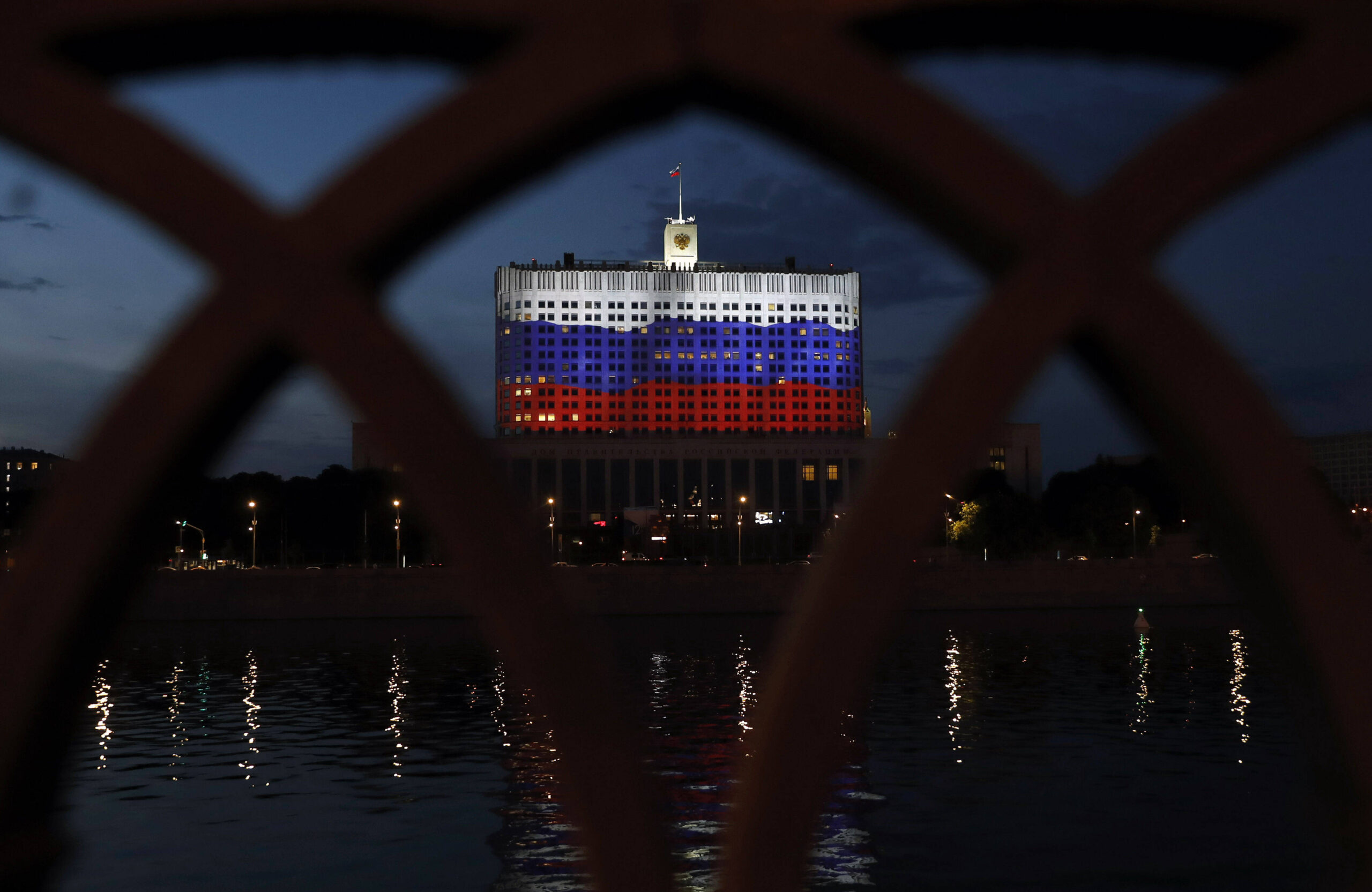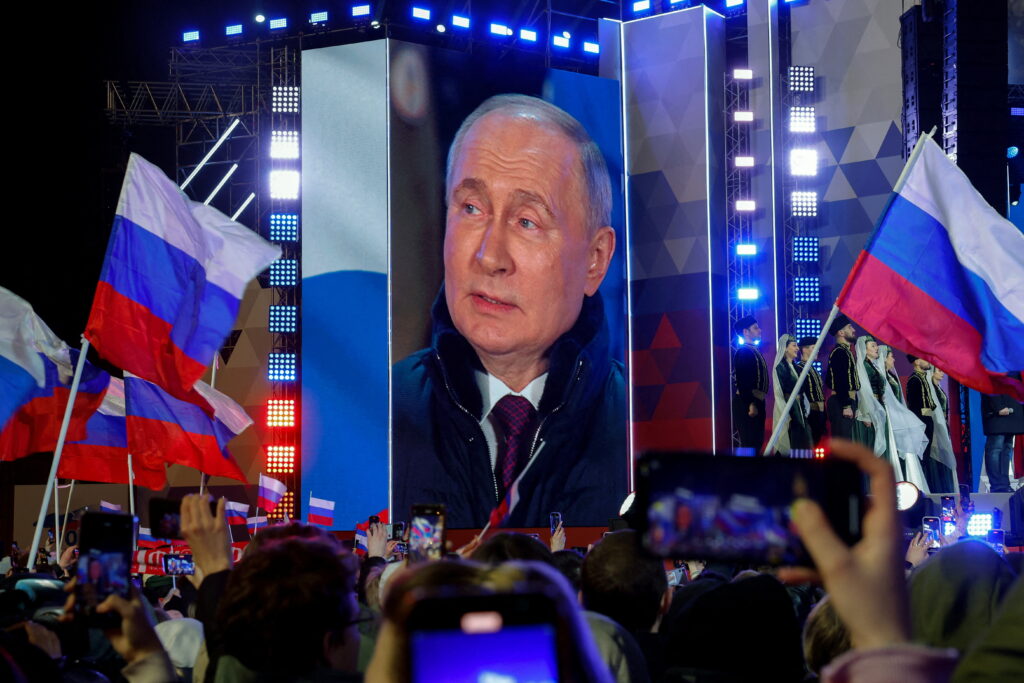Boosted by the ongoing aggression in Ukraine, the idea of Russia as a perennial ‘evil empire’ in need of decolonisation seems to have come back into fashion. The nations and minority peoples within and around its vast territories have experienced the issue first-hand for well over two centuries. With the latest conflict, many in the West have also been reminded of the persistent, often violently imposed hierarchical claims underlying Russia’s imperial tendencies. This has recently led to debates among western observers on both sides of the Atlantic; suggested solutions to the question of decolonisation have ranged from critical engagement, to the outright dismemberment of what remains the world’s largest state in terms of territory.
But this perception of Russia as an all-conquering behemoth has a chequered history in the West, one that has oscillated with the ups and downs of its relationship with Moscow after the end of the Cold War. In fact, the Russian Federation was rarely referred to as an empire before the 2008 invasion of Georgia: indeed, it itself had remained unsure of exactly what it was for much of the preceding period, with various versions of ‘Russia’ – multicultural federation, nation-state, and, indeed, empire — competing against each other for much of that period. And, besides, many in the West were too committed to the ‘liberal’ Boris Yeltsin, and too taken in by Vladimir Putin’s demonstrative enthusiasm for the Global War on Terror to turn the brutal — and very imperial — wars in Chechnya, and indirect ‘divide-and-rule’ meddling elsewhere into a point of principle.
Russia’s post-2014 aggressions against Ukraine have now unequivocally pushed the dial. Calls for its breakup, and the self-determination of its 83 internationally recognised federal subjects and over 190 ethnic groups have also become more vocal of late.
Such calls should be taken seriously — as part of a genuine decolonising process — when they emanate from those subject peoples themselves (in fact, they seldom have). But a measure of caution and scepticism is in order when they are embraced, and promoted, by some Western actors: however well-meant or eloquently justified, one cannot ignore the role of base self-interest and ideological zeal in distorting and instrumentalising ‘decolonisation’ away from its original emancipatory meaning.
Indeed, history — including post-Cold War history — is replete with instances where unrepresentative political actors were promoted and far-away minorities were instrumentalised based on geopolitical convenience and ideological conformity, rather than genuine, indigenously defined emancipatory goals: witness the false hopes placed in dubious characters like Ahmed Chalabi during the earlier stages of the Iraq war, the fascination in certain neocon circles with the cult-like, marginal Mujahedeen-e-Khalq group in Iran, the West’s abrupt abandonment of the Afghans, or its precarious support for Syria’s Kurds, among many other examples. The result of such instrumentalization is often disaster through misperception and miscalculation, not least for those who themselves were to be emancipated and decolonised.
The problem is exacerbated by the nature of Russia itself: its multiple hybridities complicate any straightforward application of ‘decolonisation’ to its particular experience. It (still) is a great power, but never became an unequivocal part of the colonial West; quite on the contrary, in its Soviet guise, it vehemently defined itself against empire. Its relations with some of its internal minorities — notably but not exclusively in the North Caucasus — retain a colonial aspect, with native populations on the peripheries subject to racialised hierarchies, and — as in Western settler-colonial societies — historically overpowered through migration and genocide; on the other hand, its contiguity makes it more akin to the long-defunct European territorial empires. Added to this is how Russia also retains aspects of a nation-state, with about 80% of its population identifying as ethnic Russian, and many of its autonomies — including most of those allocated to non-Russian titular ethnic groups — boasting solid ethnic Russian majorities or pluralities.
Mixed with an element of self-interest, this complexity might explain the oscillations seen in the West between accepting it as a legitimate entity in a post-imperial world during good times, and its rejection as an illegitimate empire when relations are at an ebb. Added to this is the fact that its previous incarnation — the USSR — did not fall because of an anti-colonial struggle by its constituents, but, rather, imploded due to internal systemic contradictions. This structurally driven demise failed to confront the Russians themselves with their former subalterns’ wish for emancipation. Except perhaps in the Baltics — which, incidentally, have managed to thoroughly de-colonise themselves from Russian rule — Moscow was never comprehensively defeated in a Gandhian uprising or an Algerian war in the same way France or Britain were during their period of decolonisation. The century’s ‘greatest geopolitical catastrophe‘ could be explained away as just that: the result of an abstract, catastrophic force of nature rather than the determined resistance of unwilling imperial subjects.
The significance of the war in Ukraine lies in the latter’s unfortunate importance to Russia’s identity as a great power; and, as such, it is the long-delayed confrontation of Russia-as-empire with its own mortality, and the wish of its claimed subordinates to go their own way. It illustrates one important element in Russia’s decolonisation, and the one way the West can certainly help: in reinforcing the resilience of not just Ukraine, but all former Soviet republics surrounding the Russian Federation — many of which are already well on their way towards decolonisation. Moscow must be made to understand that turning back the clock is no longer possible, most importantly by those societies themselves; decolonisation must start with Eurasia’s sovereign states, and failure in a clearly imperial war against one of those states would be one way to prod Russia in that direction.
But beyond this already challenging aim, schemes aimed at dismembering the Russian Federation itself are far-fetched and dangerous, not least to the nations and peoples within and around it. Falling empires have a tendency to crush smaller peoples underneath their weight, and pushing for Russia’s dismemberment may achieve exactly that. A ‘guided’ dismemberment would require the defeat of a nuclear power, and social engineering over territories over a vast scale with a probably unwilling majority population. As for an uncontrolled implosion, all it takes is imagining multiple mini-Russia’s with their own nuclear devices to get a sense of what could ensue: the 1918−1920 civil war, but with armed-to-the-teeth reds, whites, and greens, with ethnic minorities stuck in between. The 1990s Balkans, but much, much more violent — and genocidal. As so often in International Affairs, one has to be careful what one wishes for.
This makes it important to see the problem of ‘decolonisation’ not in terms of Russia as a territorial entity, but with reference to it as an authoritarian, hierarchical ‘power vertical’. More than its physical dismemberment, Russia needs a change in governmentality away from the ‘Imperial’. While this will remain highly unlikely under the current Putin regime, subsequent Russian governments may very well come to reconsider their assumptions in light of a failed colonial adventure, and longer-term economic — and technological — marginalisation. The Russian behemoth came close to redefining itself in more egalitarian terms in 1917, and 1991: next time events result in a Russian self-questioning, the challenge for the West, the chastened Russians themselves, and their internal and external subalterns will be to push the dial to where it is supposed to be — into a post-imperial mindset. Without setting much of Eurasia — and perhaps the world — on fire in the process.










